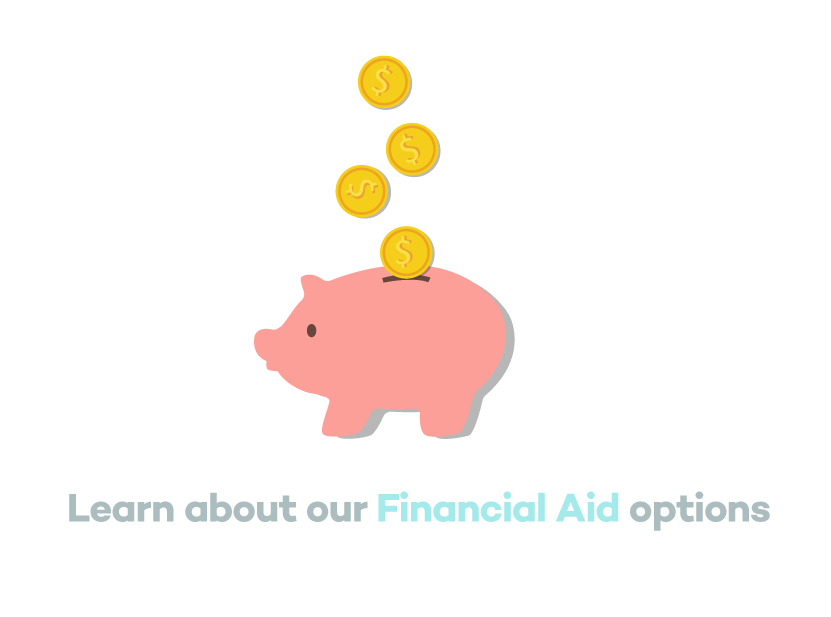We welcome students from all corners of the world with various economic backgrounds. NAU strives to increase the accessibility of the University’s educational programs to all qualified students. We are committed to helping students and their families access various sources of financial aid to provide a comprehensive financial aid package to all eligible students throughout their course of study.
The Stallion Calculator is a tool designed to help you estimate the direct costs of attending NAU, including tuition, fees, food, and housing. Please note that the calculator only provides estimates based on the information you enter, and actual charges may vary. It does not include indirect costs such as books, transportation, personal expenses, or loan fees, which are not billed by NAU. For the most up-to-date information, please visit the NAU Tuition & Fees page.
NAU offers the following types of aid:
Scholarships
Federal Grants
Student Loans
Federal Work Study
Military & Veteran’s Benefits
University scholarships are available to eligible undergraduate students. For more information on the eligibility requirements and criteria for annual renewal, visit NAU Scholarships.
Grants are financial assistance awarded to eligible students demonstrating financial need. This type of financial aid does not require repayment. Complete the FAFSA to be considered for federal grant eligibility each academic year.
Federal Pell Grant
A Federal Pell Grant, unlike a loan, does not have to be repaid. Pell Grants are awarded only to undergraduate students who have not earned a bachelor’s or professional degree that demonstrate exceptional financial need. Pell Grants are awarded to students who are eligible based on the results of the FAFSA and their Student Aid Index (SAI). The amount awarded will depend on the student’s enrollment intensity, which refers to the percentage of full-time enrollment at which a student is enrolled, rounded to the nearest whole percent.
For example,
- Enrollment Intensity = (Enrolled Credit Hours) / (Full-Time Credit Hours) × 100%
- Enrollment Intensity = (7) / (12) × 100% = 58% (rounded to the nearest whole percent).
Beginning with the 2024-25 award year, a student may qualify for a Pell Grant in one of three ways:
- Maximum Pell Grant (Max Pell)
- Minimum Pell Grant (Min Pell)
- Calculated Pell Grant, based on SAI (Calculated Pell = Max Pell minus SAI)
Federal Supplemental Opportunity Grant (FSEOG)
The Federal Supplemental Educational Opportunity Grant (FSEOG) is a federal grant to assist undergraduate students with exceptional financial needs, as determined by the FAFSA. Funding is limited. Pell Grant recipients with the greatest need (Student Aid Index (SAI) = -1500) will be given priority. Students must be enrolled at least half-time (6 credits) to be considered. Award amounts may vary based on available funding and enrollment status.
Student loans are borrowed funds that must be repaid with interest. NAU offers the Federal Direct Stafford Loan to eligible students. There are many flexible repayment plans available. The amount that students are eligible for varies. Additionally, parents of dependent students may also be eligible to request a Direct Parent PLUS Loan to meet the cost of attendance. Eligible students must maintain half-time enrollment to qualify for disbursement.
If further assistance is needed or if a student is ineligible or has exhausted all federal aid, there may be other loan options available to help meet educational expenses. Private student loans are available through private lending institutions. The loan terms, interest rates and fees will vary by lender. NAU encourages students to evaluate their budget and resources each semester and only borrow the amount of loans needed.
Federal Direct Loans
Requirements
In addition to completing a FAFSA, federal student loan borrowers are required to complete the following:
| Entrance Counseling | Entrance counseling ensures you understand the terms and conditions of your loan and your rights and responsibilities. You’ll learn what a loan is, how interest works, your options for repayment, and how to avoid delinquency and default. Click here to access the Federal Direct Loan Entrance Counseling Guide. |
| Master Promissory Note | The Master Promissory Note (MPN) is a legal document in which you promise to repay your loans(s) and any accrued interest and fees to the U.S. Department of Education. The MPN also explains the terms and conditions of your loan(s). |
| Exit Counseling | Exit Counseling is required for Federal Direct Loan borrowers when a student leaves or graduates from NAU or is no longer enrolled at least half-time. Click here to access the Federal Direct Loan Exit Counseling Guide. |
Private Loans
Federal Work Study (FWS) is a federally subsidized financial aid program that provides part-time jobs for eligible undergraduate and graduate students with demonstrated financial need, allowing them to earn money to help pay for educational expenses. Please see the attached flyer for important information regarding the Federal Work Study student worker hiring process.

